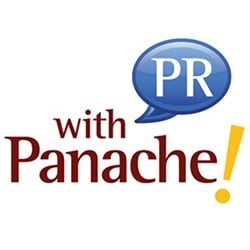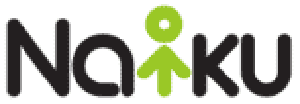EdTech Times had the pleasure to meet with Greg Wright, CEO of Naiku – an edtech company that develops and provides cloud-based classroom assessment software. Here’s what Greg had to share with our readers.
ETT: What is the market segment your company is in?
Naiku provides next generation cloud-based classroom assessment software. With Naiku’s learner-centric assessment software, teachers measure and track student knowledge and engage students in any subject and grade to help differentiate instruction and personalize learning for all students.
ETT: Who are your core customers and how did you come across the problem you’re addressing and how did you define it – what was your process in identifying it?
Our core customers are K12 educators; administrators and teachers that are looking to transform student learning for all through differentiated instruction and utilizing research proven strategies such as student self-assessment to engage students and accelerate learning. We recognized that traditional assessment solutions used in the classroom didn’t provide teachers the necessary insight into student performance and conceptual understanding to allow them to differentiate instruction on a regular basis. Perhaps more importantly, they didn’t help teachers engage students with their own learning. Research shows that metacognitive practices such as confidence-based assessment, justification/journaling, and self-assessment are primary drivers for accelerating student learning – we seek to help teachers implement these research proven strategies readily in the classroom.
ETT: And how did you develop a solution to this particular problem and what was your process of arriving at it?
I am fortunate that I have colleagues with deep knowledge and expertise in the area. For example, Adisack Nhouyvanisvong has a Ph.D. in Education Psychology. As a trained psychometrician, he has spent his career leading the development of and ensuring the psychometric quality of student assessments. Additionally, he has educated many teachers in assessment theory, practice, and associated instructional strategies as a university professor. My own experience as an executive with various EdTech companies such as Renaissance Learning, coupled with a personal background of having a wife who teaches high school English (as well as a father who taught Math for many years) helped frame our solution from a practical standpoint – seeking to ensure that ease-of-use and adoptability through the SAMR model, for example, were part of our process.
ETT: What it is that you’re doing differently than your competitors? And do you expect to develop other differentiators in the future?
Our goal is to help teachers accelerate learning for all students. As a learner-centric assessment solution, Naiku is different than other assessment products in that it not only facilitates formative assessment to provide teachers immediate knowledge and insight around student proficiency to inform their instruction, but it also provides feedback to and engages the student with their own learning. Through methods such as confidence rating, goal-setting, journaling/justification, reflection, and adaptive learning resources, the traditional assessment experience can be transformed into a learning experience for students.
ETT: Please describe your product development strategy and product stage. What we should expect to see from your company in the next 12 months – i.e. describe your potential next milestones?
Naiku is presently in the market and actively being used by teachers, schools, and districts for next generation assessment. Naiku is used at the teacher level for everyday classroom assessment, as well as across teams, schools, and districts for common formative and benchmark assessments. We are a strong believer in listening to and incorporating customer feedback in our product development. This school year alone, we’ve added Adaptive Learning Resources and Curriculum Maps within Naiku. These features were developed based on customer feedback and input. Our goal is to continue to help teachers measure and track student proficiency to inform their instruction – whether individually or across teacher teams or a district – and personalize learning for their students. We continue to solicit feedback from educators, and future releases over the next year will be based on that feedback.
ETT: Are you a disruptor, and why so? Do you believe you will remain as a disruptor in near foreseeable future or become a more mature company? Why is that so?
We believe our learner-centric assessment software is disruptive, in that it allows the teacher to transform and accelerate student learning for all. By facilitating research-proven strategies such as student self-assessment, formative feedback, metacognition, and more, teachers can transform the traditional assessment experience from one that is traditionally more summative, to one that is not only actionable and informative for the teacher, but directly informative for the student as well. In so doing, the assessment experience becomes personalized and is a learning experience for the student.
ETT: Could you tell us about other startups or product builds that you have been a part of and what your role was?
I’ve been involved with a number of EdTech companies and products. Most notably for my present responsibilities as CEO of Naiku, I previously was a SVP/GM at Renaissance Learning, where I led the Electronics Division. Products within my division included hardware and software for a line of student response (clicker) systems, used to provide early formative assessment capability for teachers. Clickers from Renaissance and others, while limited in capability, were among the first tools to facilitate formative assessment in the classroom. From that experience I learned first-hand how helpful formative assessment could be.
ETT: Did you or do you currently have a mentor who is/has been helping you through the startup stages of the company – who is that mentor?
In addition to drawing on my own experience in collaborating with educators over the years, I always try to keep in mind two educators close to my heart. My wife is an experienced ELA teacher, and my father is a retired math teacher. While I believe the diversity of backgrounds, educational level, instructional and support needs of today’s student is in general a fair bit different than in my father’s generation – and therefore the need for EdTech products that support teachers is far greater – one constant is the pressure on teacher’s time in helping students learn. I strive to ensure that we are listening to teachers, and helping them achieve their goal of advancing student learning for all of their students.
ETT: Where is education technology market going in the next few years?
I think the education technology market will continue to grow in the ability to help teachers meet the needs of all students, by helping them readily inform and differentiate their instruction and personalize learning for their students.
ETT: What advice, if any, do you have for someone thinking about launching a company in the education technology market?
Listen to teachers!
EdTech Times thanks Mr. Wright for the privilege of speaking with him, and we recommend you learn more about Naiku at:



